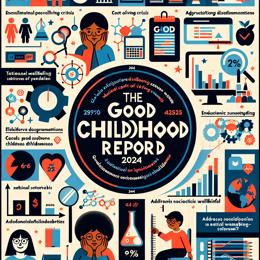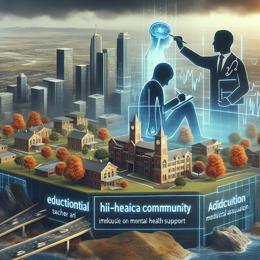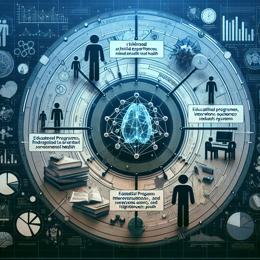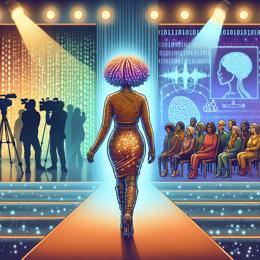Image created by AI
The Rise of 'Rotting': Why Youth Embrace Doing Nothing as a Form of Rebellion
Every generation finds its own way to buck societal expectations and carve out a sense of identity, often through linguistic innovation and cultural practices. The terms "brain rot" and "bed rotting," having gained traction among Gen Z-ers and millennials, epitomize a modern form of rebellion against the incessant demands of an always-on digital world.
"Brain rotting," as described by mental health experts, refers to engaging in seemingly mindless activities such as endless scrolling through social media or binge-watching series for hours. This phenomenon, rather than simple laziness, is an escape from reality and a subversive response to societal pressures which demand constant productivity and engagement. "Bed rotting" follows a similar vein, involving extensive periods spent in bed, which may seem lethargic but speaks volumes about the mental and physical exhaustion felt by younger generations.
Psychologists like Caitlin Slavens from Yahoo Life propose that these trends are not mere indulgence in laziness but rather a cri de coeur against an overwhelming world. The chaos of modern life, shrouded in a relentless barrage of digital communications and societal expectations, is causing a profound burnout among these younger demographics. Such activities that many label as 'rotting' are, in fact, attempts to hit pause on life's demands.
This form of disengagement is markedly characterized by the desire to disconnect and recuperate in what some might deem an extreme manner. However, this disconnection is seen by some as essential. It's a chosen stasis, a sort of resistance against the unachievable benchmarks set by previous generations, swathed in the guise of career advancement and social visibility.
Nevertheless, not all are convinced that prolonged disengagement is beneficial. Detractors argue this could lead to a cycle of avoidance and emotional stagnation, highlighting the importance of balance. Engaging in 'rotting', they argue, should not become a habitual escape that leads to neglect of responsibilities or fear of real-world engagement.
Furthermore, mental health professionals underline the importance of intentional resting practices. Rather than fall into patterns of passive consumption, which might offer immediate but fleeting relief, advocates for mental wellness are calling for a structure of proactive, healthy habits that involve genuine resting without digital interference.
From an historical perspective, every major societal shift, such as the Industrial Revolution, has forced adaptations in lifestyle and work. The digital age, as profound a shift as any before, requires similar adaptations. Embracing moderate 'rotting' as a form of rest and reset is one thing, but integrating intentional rest and healthy boundaries into daily life is crucial to preventing burnout before it starts.
In summary, while "rotting" might appear to some as an alarming trend of disengagement among the youth, it may well be a necessary, albeit temporary, retreat in a world that relentlessly demands attention and productivity. Only time will tell if this generational tactic of coping will evolve into a more sustainable lifestyle or if it’s merely a symptomatic response to contemporary challenges.










